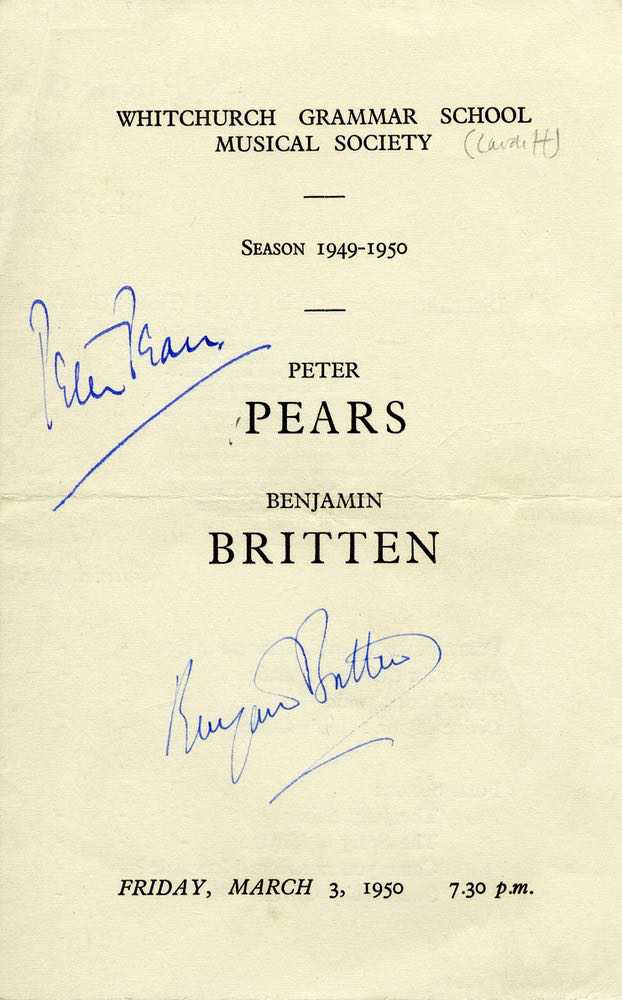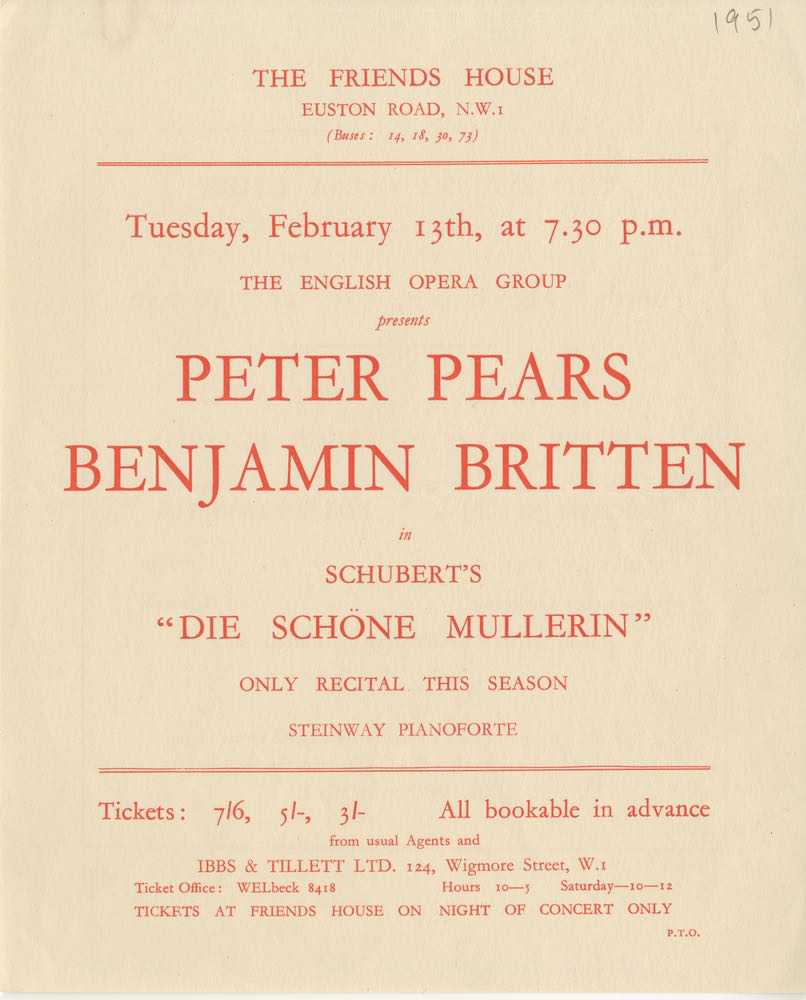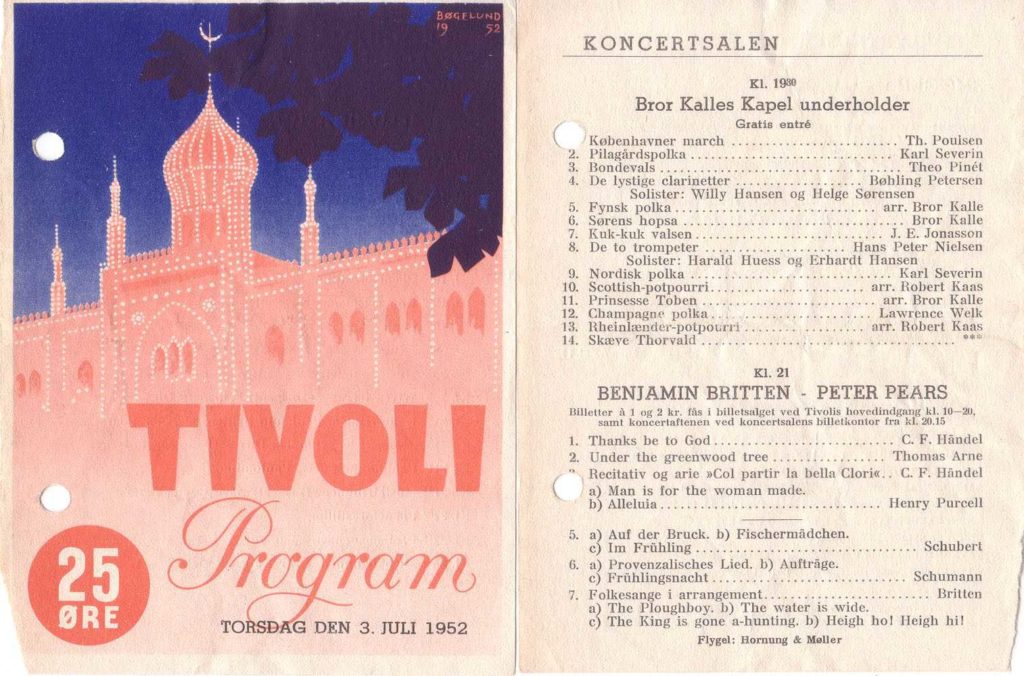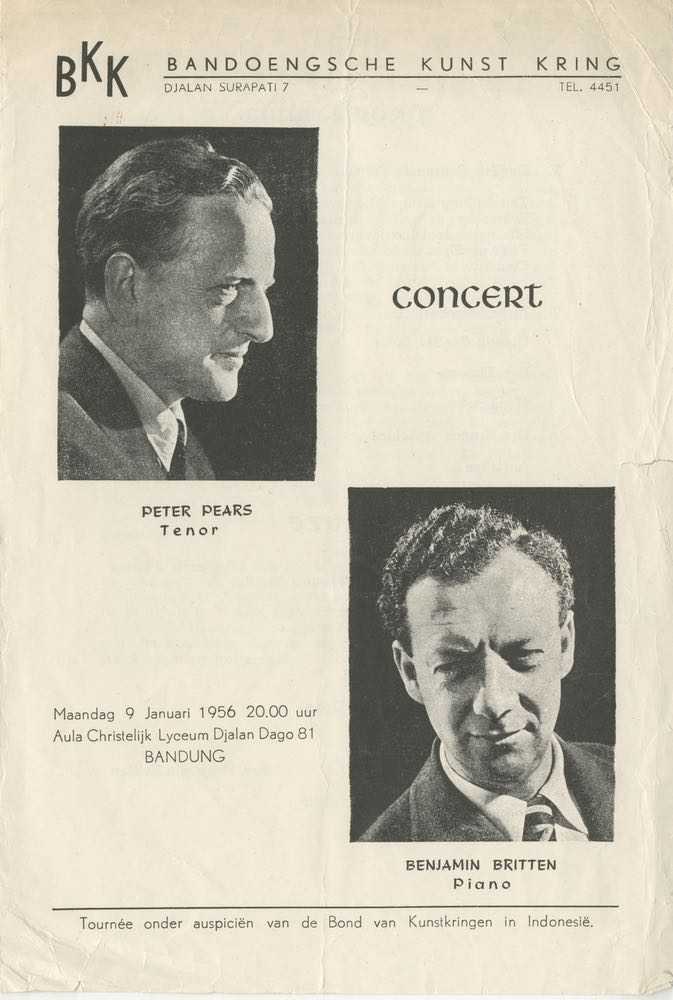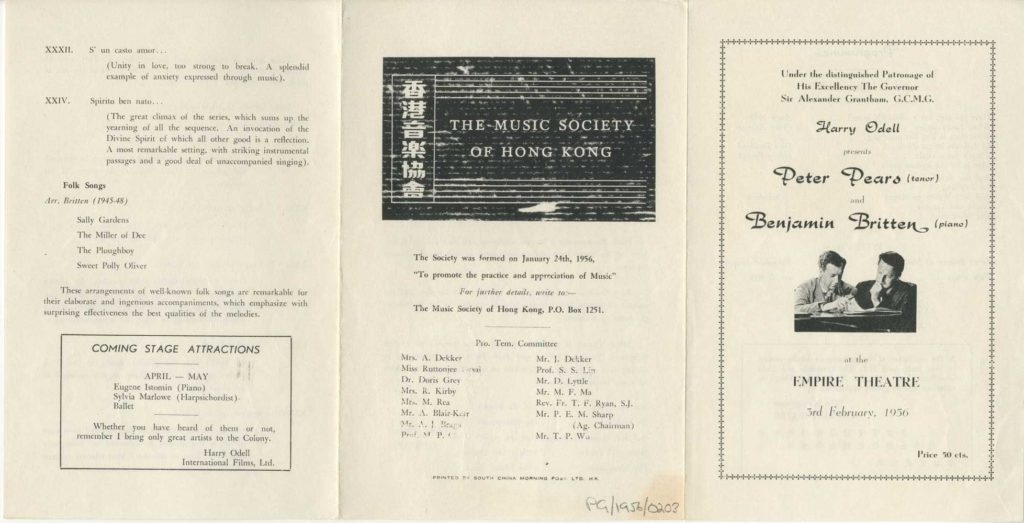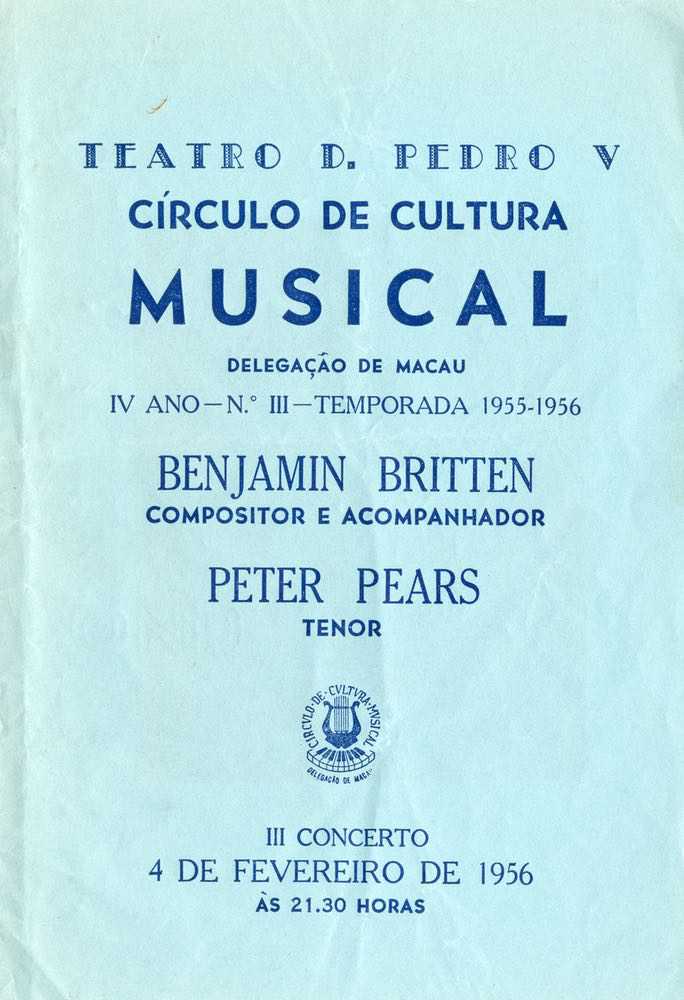Such an Artist
to Write for
Benjamin Britten’s relationship with Peter Pears completely altered the creative course of his life. He began composing vocal music inspired by Pears’ voice in 1940, and while he also wrote for other performers over the following decades, Pears remained his most constant and significant ‘muse’.
Such an Artist to Write For explores the remarkable relationships between Britten and his artistic collaborators, and reveals the powerful role that Pears, in particular, played in Britten’s compositions.
“I was attracted, even in those early days, by his voice”
Britten, 1967
The Works
In November 1974 Britten wrote to Pears: ‘you are the greatest artist that ever was…What have I done to deserve such an artist and man to write for?’. Pears replied ‘it is you who have given me everything, right from the beginning…I am here as your mouthpiece and I live in your music.’ That Pears ‘lived’ in Britten’s music is evident in the sheer amount of it there is. Here, we reveal just how much music Britten composed for Pears, and what effect his partner had on his composing career.
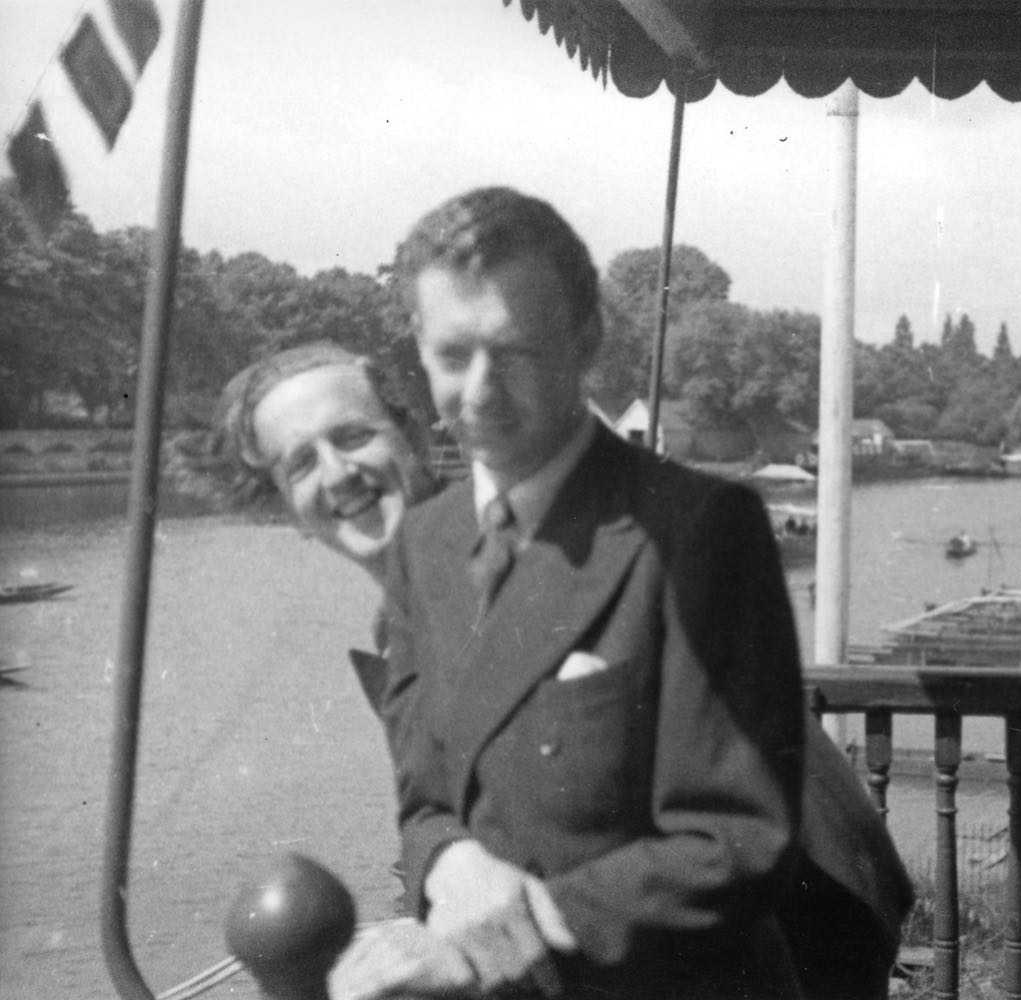
c.1945-47, photographer unknown 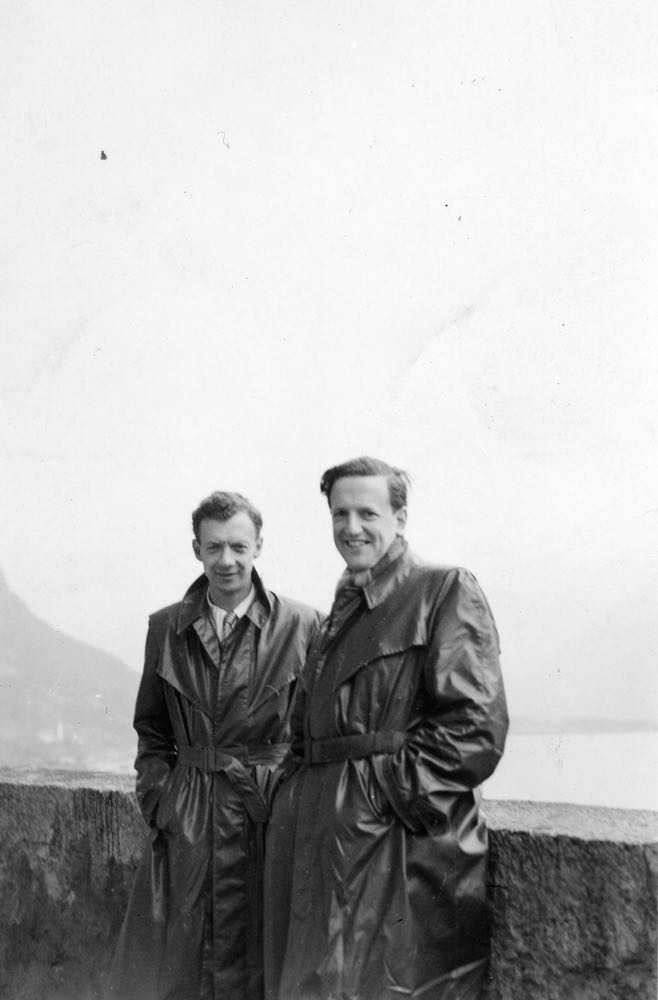
Mid 1940s, photographer unknown 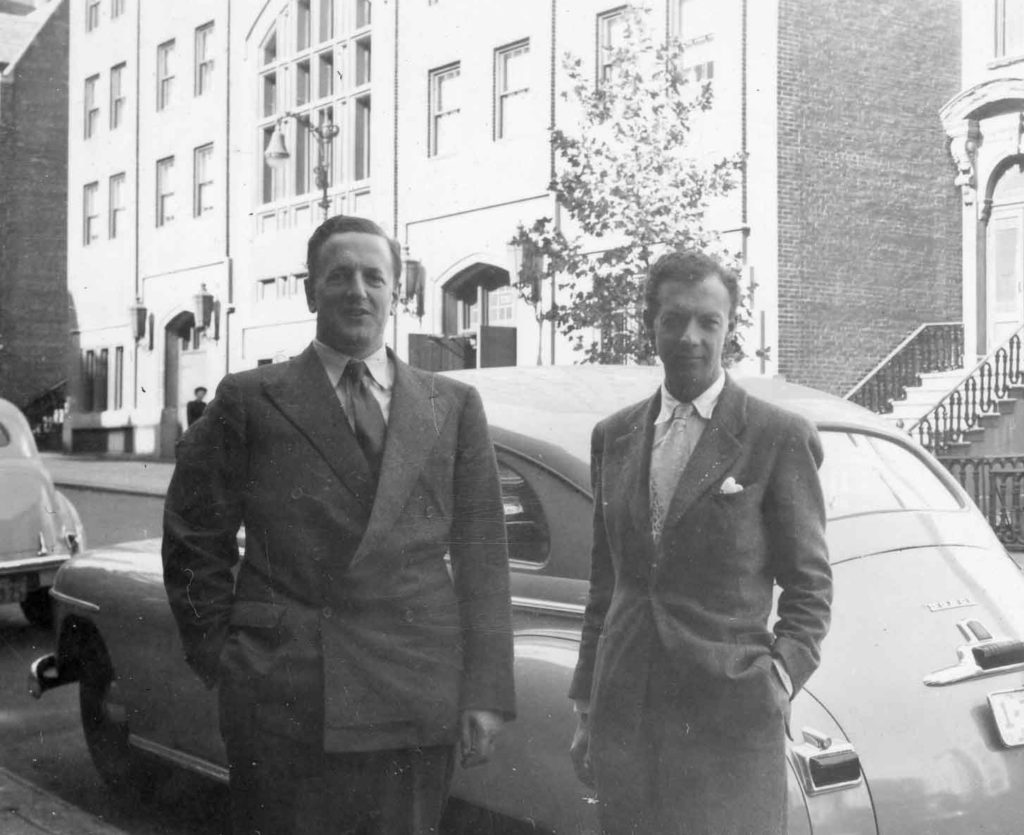
New York, 1949, photographer unknown 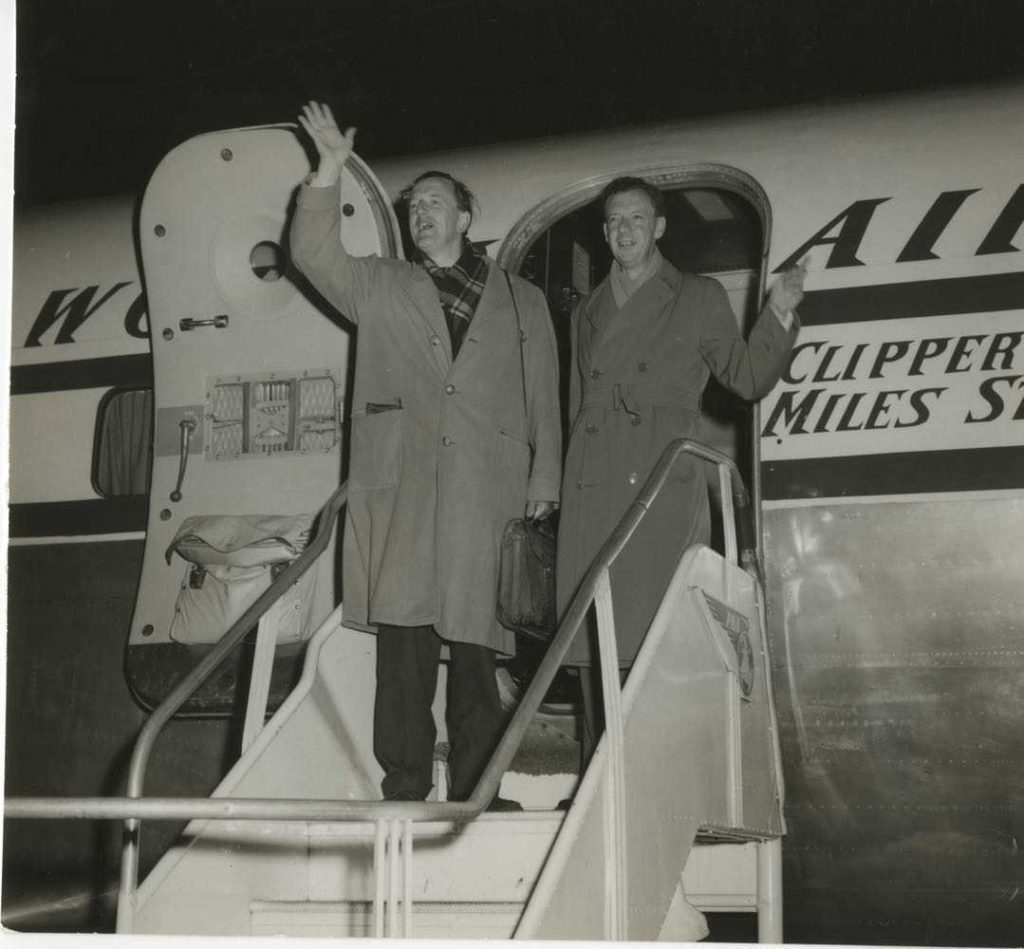
During a tour of the Far East, 1956, photographer unknown 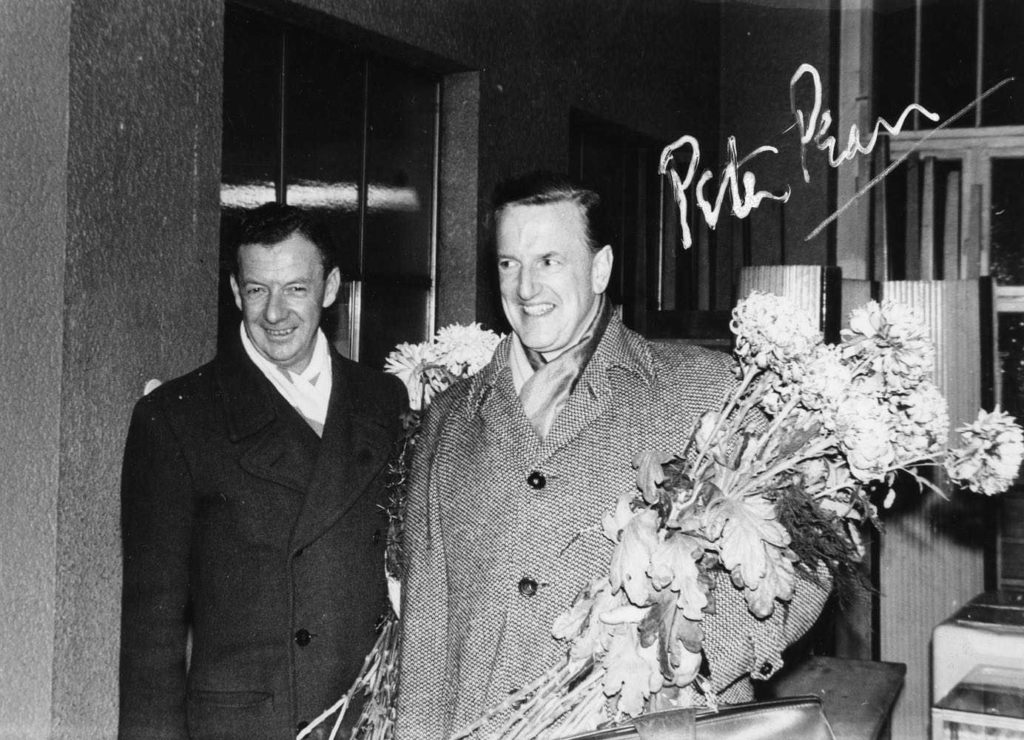
1964, photographer unknown 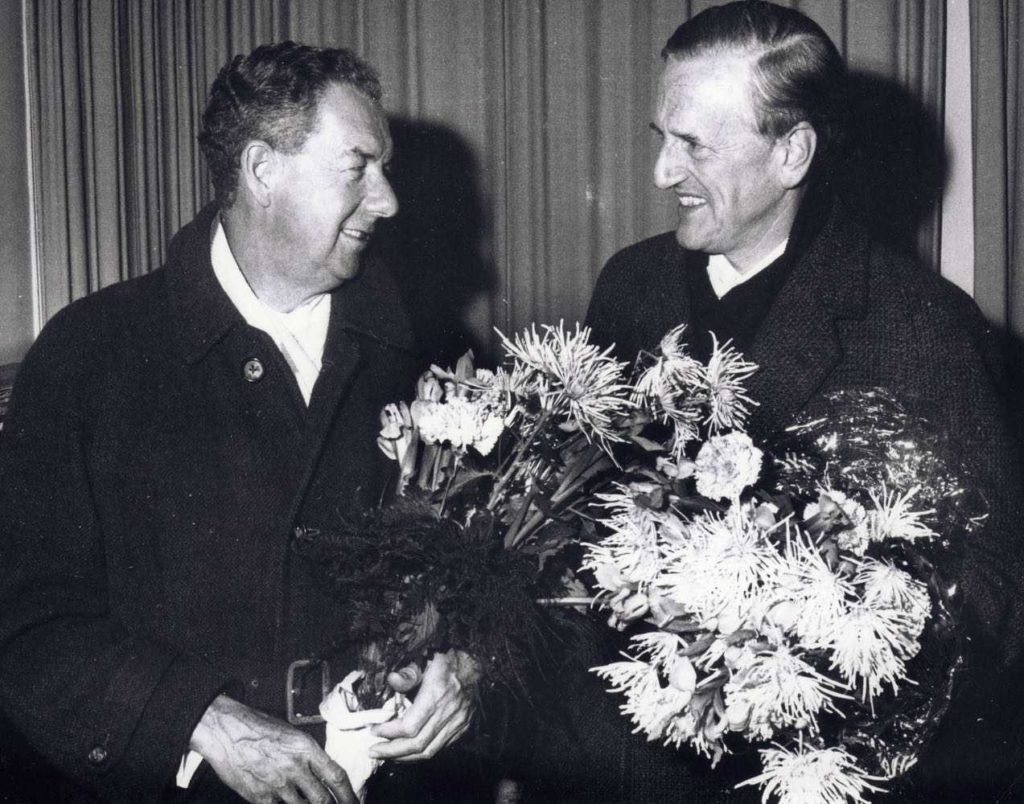
1968, photographer K. Bauknecht 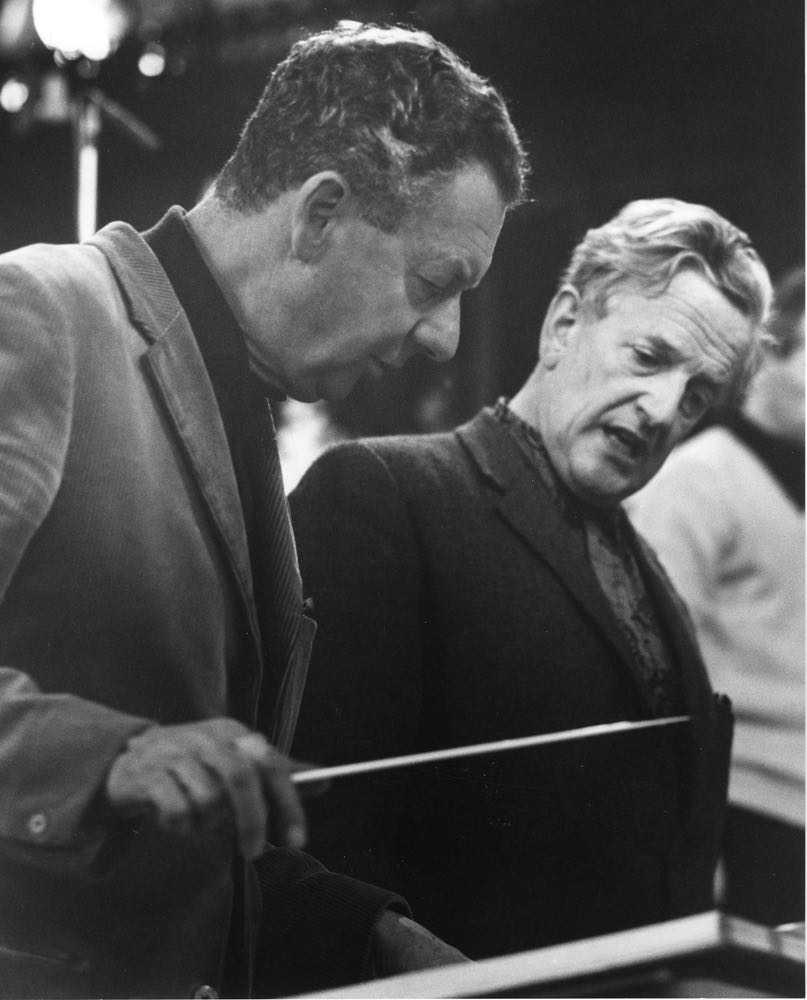
In Orford Church, 1967, photographer Richard Adeney 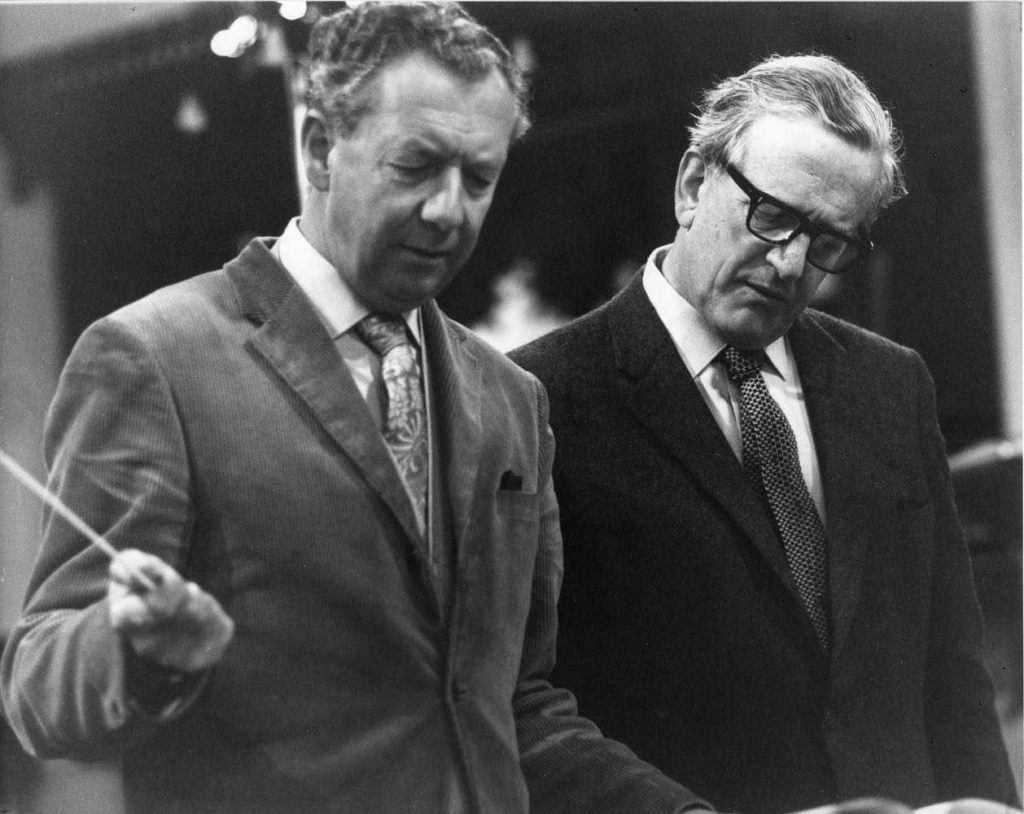
• In Orford Church, 1967, photographer Richard Adeney 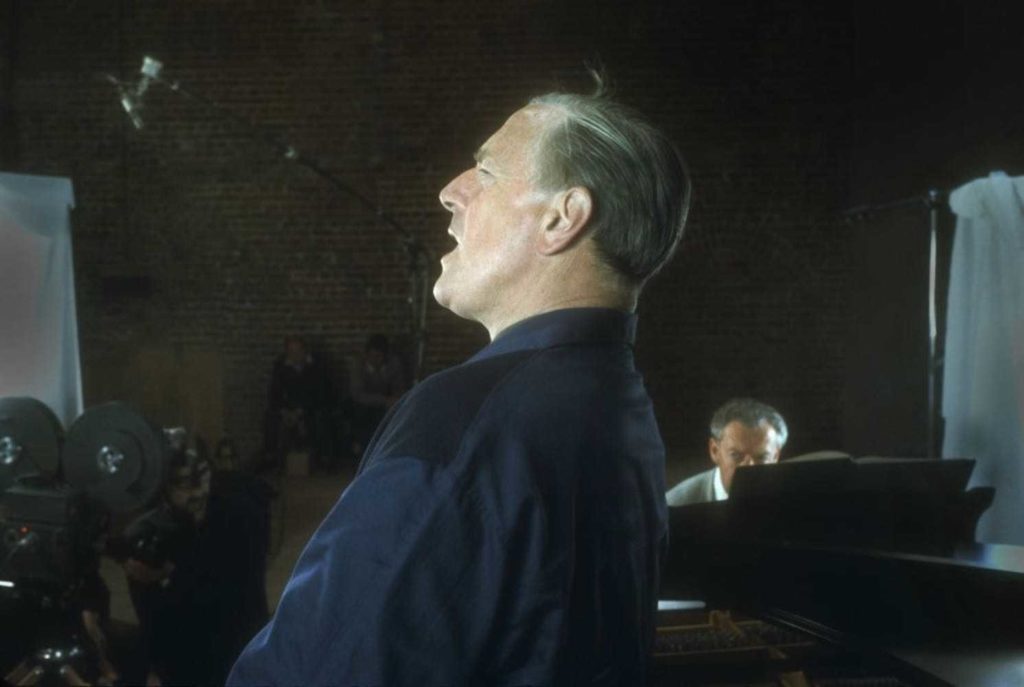
Rehearsing at Snape Maltings, 1967, photographer Brian Seed 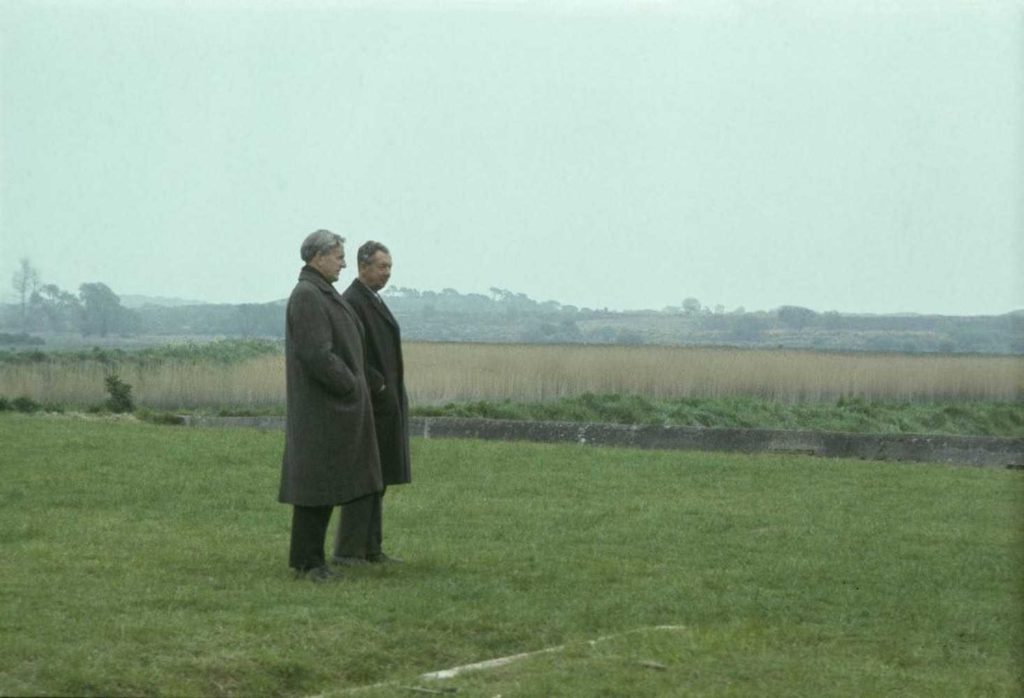
At Snape Maltings, 1967, photographer Brian Seed 
Rehearsing at Snape Maltings, 1967, photographer Brian Seed
“My inclination is to start from the vocal point of view”
Britten, 1961
While Britten composed quite a lot of vocal music before meeting Pears, it was after their relationship began that vocal music overtook non-vocal music in his output – and by quite some distance. The first graphs show the percentages of vocal versus non-vocal works in the pre-Pears era (including Britten’s childhood works), and the Pears era.
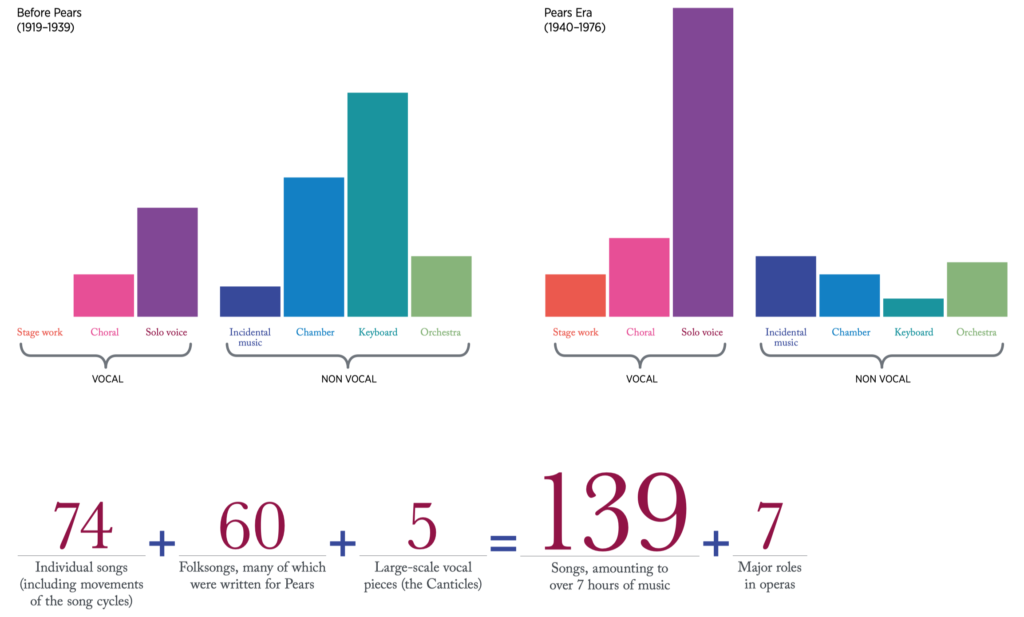
Music for Pears
Operatic roles for Pears
‘Peter Grimes’ in Peter Grimes (1945)
‘Male Chorus’ in The Rape of Lucretia (1946)
‘Albert Herring’ in Albert Herring (1947)
‘Captain Vere’ in Billy Budd (1951)
‘Essex’ in Gloriana (1953)
‘Quint’ in The Turn of the Screw (1954)
‘Aschenbach’ in Death in Venice (1973)
+ major roles in all three of the Church Parables (1964, 1966, 1968)
Songs for Pears
Seven Sonnets of Michelangelo (1940): 7 songs
Serenade (1943): 6 songs
The Holy Sonnets of John Donne (1945): 9 songs
Canticle I: ‘My Beloved is Mine’ (1947)
Canticle II: ‘Abraham and Isaac’ (1952)
Winter Words (1953): 8 songs
Canticle III: ‘Still falls the Rain – The raids, 1940, Night and Dawn’ (1954)
Three songs from The Heart of the Matter (1956)
Songs from the Chinese (1957): 6 songs
Sechs Hölderlin-Fragmente (1958): 6 songs
Nocturne (1958): 8 songs
Who are these Children? (1969): 12 songs
Canticle IV: ‘Journey of the Magi’ (1971)
Canticle V: ‘The Death of Saint Narcissus’ (1974)
A Birthday Hansel (1975): 7 songs
+ 2 single songs (Um Mitternacht and Birthday Song for Erwin)
+ 60 folk songs
The Recitals
The 1950s was Britten’s busiest decade, during which he composed an astonishing 69 works. For Pears, he composed four song cycles, two large-scale vocal works (Canticles II and III) and major roles in three operas: Vere in Billy Budd, Essex in Gloriana and Quint in The Turn of the Screw. The performing schedule for both Britten and Pears was similarly hectic. Britten was Pears’ principal accompanist (only taking a break for illness in 1954) and the concert programmes here vividly illustrate how much their creative partnership was in demand on the recital stage.
In this film, Dr Lucy Walker explores Britten and Pears’ recital partnership further, including the international reach of their performance schedule, during the hectic 1950s.
“I live in your music”
Pears to Britten, 1974
Over the course of their 37-year long relationship Britten wrote hours of music for Pears to sing and got to know his voice incredibly well. The song cycles were shaped to best suit the particular characteristics, strengths and idiosyncrasies of Pears’ voice. The expressive capabilities of what Britten called his ‘flexible’ voice were put to the service of both the music and the poetry of Britten’s song cycles. This interactive show the exact notes that Britten composed for Pears in the song cycles. The circles show the occurrences of individual note in the songs – the larger the circle, the more times that note appears. Over time, as Pears got older, the general range of the cycles dropped to accommodate Pears’ changing voice. As the interactive shows, Pears’ influence on Britten’s compositional life extended into the very notes on the page.
Allan Clayton on Britten’s Music for Tenor
In this film, tenor Allan Clayton discusses the operatic roles and song cycles Britten wrote for Pears, and the challenges of singing such ‘bespoke’ music, composed for such a very particular performer.
“I am most completely and hopelessly committed to the people I write for”
Britten, 1967
After Pears, the person for whom Britten composed the most was the Russian cellist Mstislav Rostropovich. In the 1960s, when he took something of a break from song-writing, Britten produced six works for ‘Slava’. The talents of many other people over the years also inspired Britten to write for them, including some of the most famous and successful artists of the twentieth century.
Sophie Wyss
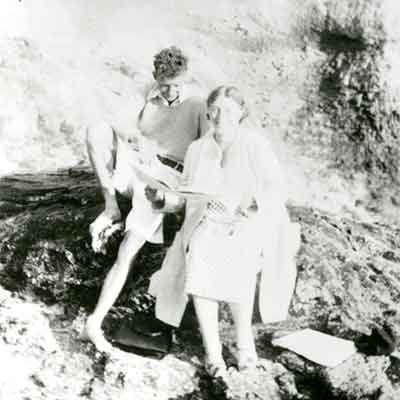
Sophie Wyss
“Have a long rehearsal in Village Hall with Sophie at Our H.F. – she is beginning to sing it very well indeed”
Brittens’ diary, 26 August 1936
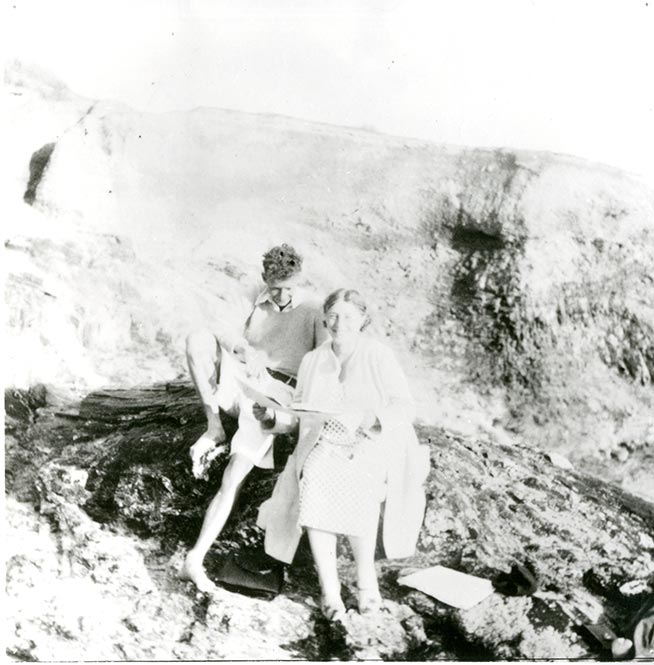
Wyss (1897-1983) was Britten’s ‘voice of choice’ before Pears. She was the first performer of the song cycles Our Hunting Fathers (1936), On This Island (1937), and Les Illuminations (1939).
Hedli Anderson
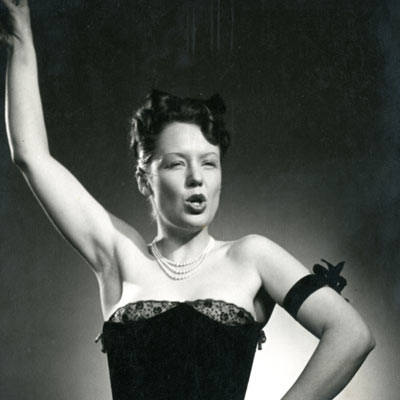
Hedli Anderson
“My darling Hedli…you will get your songs one or two or possibly three (God help me!) . . .most probably next week”
Britten to Hedli Anderson, 1939

Anderson (1907-1990) was a versatile singer and actress, and was later married to the poet Louis MacNeice. Britten composed his cabaret songs, to texts by WH Auden, for her to sing in the late 1930s.
Antonio Brosa
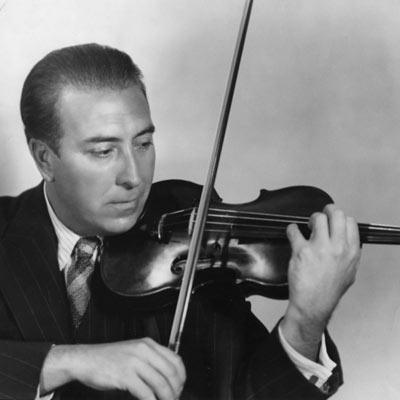
Antonio Brosa
“The [Violin Concerto] will never be better played or more completely understood than it was by you”
Britten to Brosa, 1939

The Spanish violinist Antonio Brosa (1894-1979) premiered Britten’s Violin Concerto in Carnegie Hall in March 1940. They had met a few years earlier, having been introduced by Britten’s teacher Frank Bridge, and Britten consulted Brosa on technical aspects and playability of the concerto.
Dennis Brain
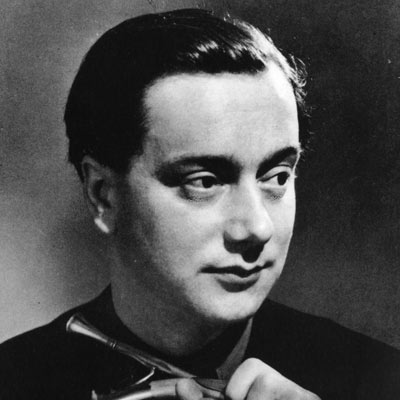
Dennis Brain
“Dennis Brain and I soon became friends and it took him no time at all to persuade me to write a special work for him”
Britten, 1958

Dennis Brain (1921-1957) came from a family of horn players and became the most famous of his generation in post-war Britain. He was immensely popular as an orchestral player, but also inspired and directly commissioned contemporary composers to write for him as a soloist. Britten wrote the beautiful song cycle Serenade with a horn part, especially for Brain, and later on composed a prominent horn part in his large-scale vocal work Canticle III. Brain died in 1957, aged only 36, in a car accident.
Kathleen Ferrier and Nancy Evans
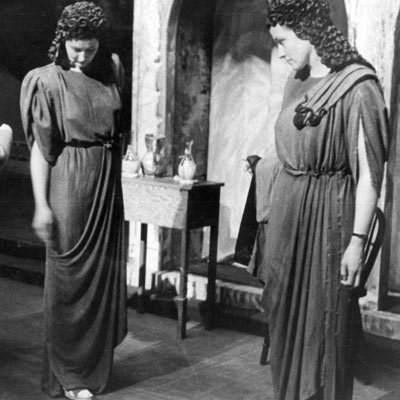
Kathleen Ferrier and Nancy Evans
“I had Kathleen [Ferrier] very much in mind”
Britten, 1954

Alto Kathleen Ferrier (1912-1953) was very much a favourite of Britten’s, and he composed the principal role in The Rape of Lucretia for her, along with the alto part in Canticle II (1952. After her tragically early death in 1953, Britten described how he had been ‘impressed immediately by the nobility and beauty of her presence, and by the warmth and deep range of her voice’.
Find out more about Canticle II.
Find out more about The Rape of Lucretia.
“You must have sung the Charm most beautifully for it to have had that kind of success. I look forward to hearing you do it.”
Britten to Nancy Evans, 1948
Mezzo-soprano Nancy Evans (1915-2000) also performed the role of Lucretia in the first run of performances in 1946. A year later, Britten composed A Charm of Lullabies for her, a cycle for mezzo-soprano.
Jennifer Vyvyan
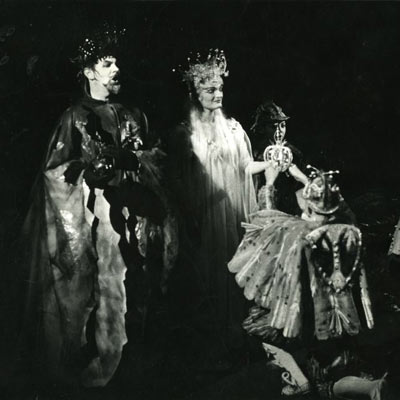
Jennifer Vyvyan
“I can hear you in what I’ve written so far”
Britten to Jennifer Vyvyan, 1962

Soprano Jennifer Vyvyan (1925-1974) premiered several roles in Britten’s operas, including the Governess in The Turn of the screw and Tytania in A Midsummer Night’s Dream. In this audio clip, the Governess of the mysterious house Bly, walks in the garden.
Jennifer Vyvyan The Governess, English Opera Group Orchestra, conducted by Benjamin Britten
Recorded in 1955 (Decca)
Julian Bream
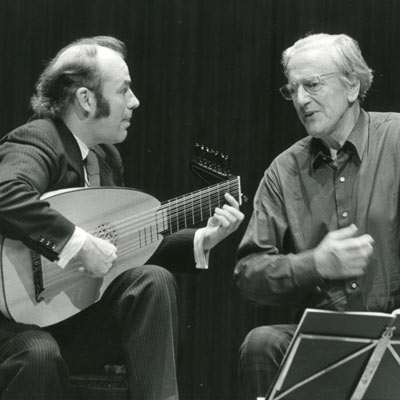
Julian Bream
“Give [Julian Bream] my love & tell him I’ll write him a lovely piece”

Britten composed Songs from the Chinese for the performing partnership of Pears and the guitarist Julian Bream (1933-2020). They had been giving recitals together since the early 1950s, usually of seventeenth century English music, with Bream playing the lute. Britten would later compose the solo guitar piece Nocturnal, after John Dowland for Bream.
Text: Po-Chü-I, translated by Arthur Waley
Peter Pears tenor, Julian Bream guitar
Recorded in 1963 (RCA)
Mstislav Rostropovich
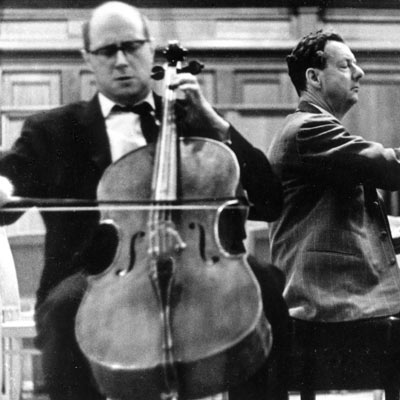
Mstislav Rostropovich
“I’ve found that I wrote a cello sonata for [Rostropovich] with a great deal of ease, and a great deal of pleasure”
Britten, 1961

Britten and Rostropovich (1927-2007) met in 1960, and the cellist immediately demanded a piece from Britten. The Sonata in C for cello and piano resulted soon afterwards, and Britten followed it with a Cello Symphony, and three Suites during the 1960s.
The opening of the first Suite is beautifully romantic and song-like, and so rich in texture it seems as if more than one instrument is playing.
Mstislav Rostropovich, violoncello
Recorded in 1968 (Decca)
Galina Vishnevskaya
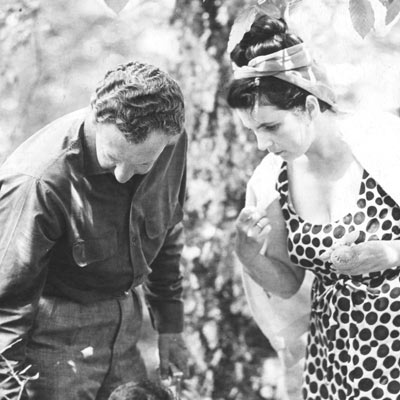
Galina Vishnevskaya
I have recently heard several of your wonderful records, which have made me a great admirer of yours’ –
Britten to Vishnevskaya, 1961

Galina Vishnevskaya (1926-2012), who was married to Rostropovich, was a flamboyantly dramatic personality who Britten clearly adored, and for whom he composed The Poet’s Echo, setting Pushkin in the original Russian in 1965. She was also the intended first performer of the soprano part in his 1962 War Requiem, but political sensitivities at the time meant she was not permitted to perform. She does, however, sing on the 1963 Decca recording of the work.
Galina Vishnevskaya soprano Mstislav Rostropovich piano
Recorded in 1968 (Decca)
Dietrich Fischer-Dieskau
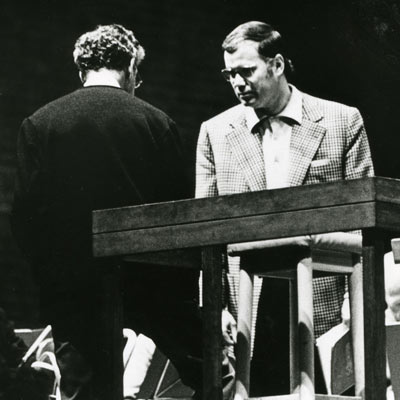
Dietrich Fischer-Dieskau

Britten approached Dietrich Fischer-Dieskau (1925-2012) directly to perform in the premiere of his War Requiem, in the newly-consecrated Coventry Cathedral in May 1962.. Britten later composed the song cycle Songs and Proverbs of William Blake for Fischer-Dieskau.
Dietrich Fischer-Dieskau baritone, London Symphony Orchestra, conducted by Benjamin Britten
Recorded in 1963 (Decca)
Janet Baker
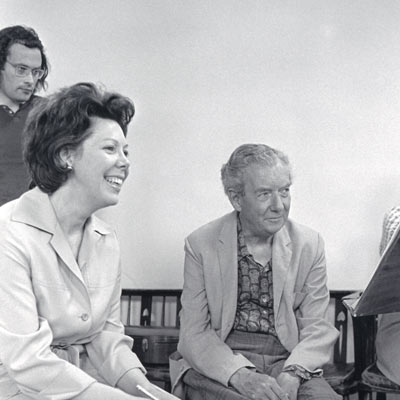
Janet Baker
‘…Being one of your greatest fans
Britten to Baker, 1966

Janet Baker (b. 1933) had played Kate in Britten’s penultimate opera Owen Wingrave in 1970. He was a huge admirer of the British mezzo-soprano, and composed one of his most powerful works for her, Phaedra, in 1975. At the end of this dramatic cantata, Phaedra takes poison because of her ‘adulterous passion’ for her step-son.
Janet Baker mezzo-soprano, English Chamber Orchestra, conducted by Steuart Bedford
Recorded in 1977 (Decca)
Osian Ellis
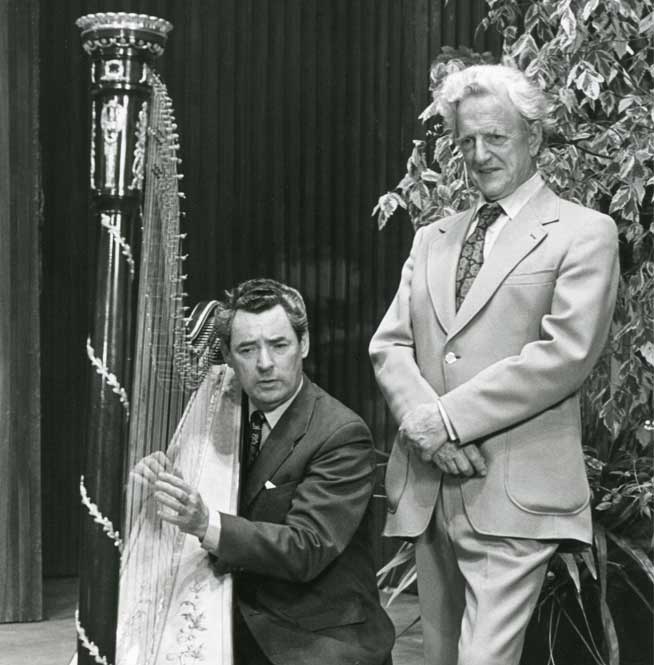
Osian Ellis

Britten composed his Suite for Harp, op. 83 in 1969, and dedicated it to its first performer Osian Ellis (1928-2021). Ellis had performed in many Britten works in the 1960s, and would (after Britten’s stroke in 1973) become Pears’s regular accompanist in such works as Canticle V: ‘The Death of Saint Narcissus’.
“I can never be thankful enough to you and to Fate for all the heavenly joy we have had together for 35 years. My darling, I love you – P.”
Pears to Britten, 1974
